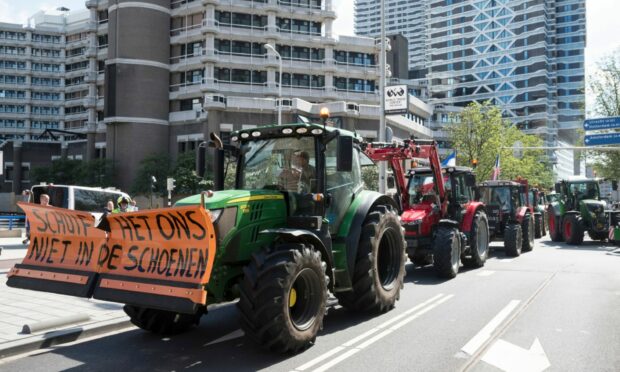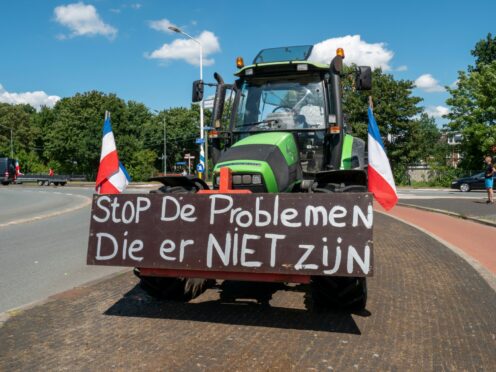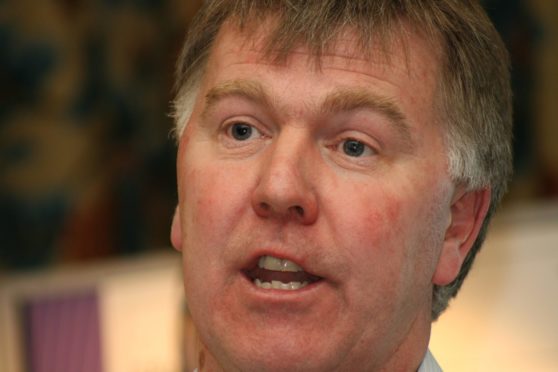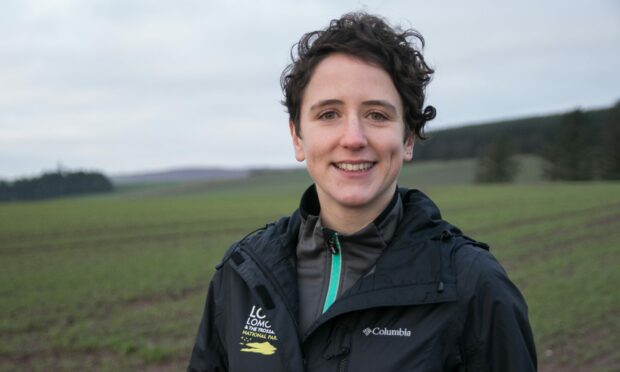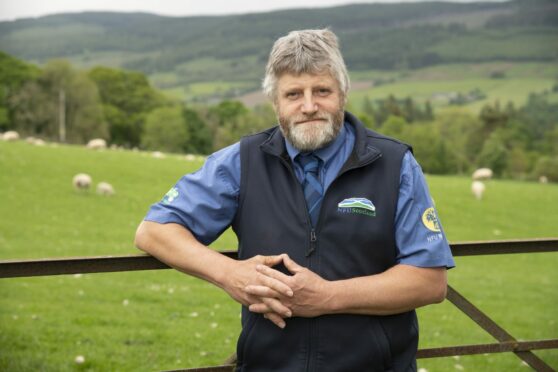Last week Dutch farmers dumped manure and set fire to hay along major motorways in the Netherlands causing traffic jams across the country.
The action was the latest in a blazing row over the Dutch government’s plans to slash fertiliser use and cut livestock numbers.
At the heart of the dispute is the recent climate plan issued by the Dutch government which aims to reduce nitrogen and ammonia emissions from livestock production by nearly 50% by 2030.
Indeed, a leaked estimate from the Dutch finance ministry predicts that nearly 11,000 farms would have to close, and 17,600 farmers would have to reduce their livestock numbers to meet the tough targets.
Dutch farmers are also extremely critical of their government for not conducting an impact assessment of its plans before agreeing them.
The government have taken a tough line and said it saw three options for farmers: becoming more sustainable, relocating, or ending their business.
All over Europe the debate on environmental targets and the impact it will have on livestock production is being played out in national capitals.
In Ireland, the Irish Farmers Association (IFA) have fought a bitterly contested campaign against the Irish Government’s threat to impose a 30% carbon reduction target on the farm sector.
The climate challenge facing Irish agriculture is almost identical to the challenge facing Scotland’s farmers – a large livestock sector, accounting for more than 30% of Irish carbon emissions, and exporting most of their production primarily to England.
The IFA were recently out in force on the streets campaigning and demonstrating against the proposed emissions target of 30% which they claimed would lead to a substantial reduction in cow numbers.
They said the maximum the industry could live with was a 22% cut in emissions.
The action taken by Irish farm leaders has led to a national debate in Ireland over the climate targets.
After weeks of wrangling the Irish cabinet finally agreed to a 25% reduction much to the fury of the Irish farm unions who claim it will be a devastating blow to Irish farming.
Compare what is happening in Ireland to what has happened here in Scotland.
Back in 2019 Scottish farming industry leaders were asleep at the wheel when the Scottish government legislated for a binding target requiring Scottish agriculture to cut its emissions by an eye-watering 34% from 7.5 million tonnes to 5.3m tonnes by 2032.
There was no debate within the industry, little scrutiny of the proposals, no impact assessment and little debate in parliament about the impact the cuts would have on the rural economy.
Instead, it was rushed through parliament so our first minister could claim Scotland had a world-beating climate plan of net zero by 2045.
Since then, I have lost count of the number of working groups set up to look at how we deliver that target.
Jim Walker’s suckler beef group was the one that finally exposed the true impact the climate reduction target would have on the country’s livestock sector.
As he discovered, even if every livestock farmer became super-efficient and used all the latest methane inhibitors, the livestock sector could barely deliver 50% of the reductions.
As civil servants inconveniently pointed out the only way currently to meet the Scottish Government’s legal target is to cut cow numbers.
The government’s hugely ambitious annual tree planting target of 18,000 hectares has triggered a massive investment in productive land for trees and taken together with their climate target all seem to point in one direction.
Big reductions in livestock production in Scotland.
The farm minister Mairi Gougeon, who seems rather averse to appearing in front of a farm audience, has denied they were advocating cuts, but it is clear her government’s policies are going to do just that.
Surely it is time she was pinned down and asked to give clear and honest answers to the tough questions about the future of livestock in Scotland.
The NFUS should be voicing the industry’s concerns and putting pressure on ministers to supply answers.
Unfortunately, their voice has been completely blunted by NFUS president Martin Kennedy sitting around the table with the minister as joint chair of the government’s Agriculture Reform Implementation Oversight Board.
At the Turriff show, Martin couldn’t hide his frustration about the lack of progress there has been since the group which he is jointly responsible for was formed last year.
Let’s be honest, the group was set up by the government as a handy talking shop where the difficult questions could be buried, and the minister could conveniently hide behind it.
It is time the union walked away from it and gave itself back the freedom to articulate the industry’s concerns about its future.
If they don’t, the risk is someone else may step into the void.
George Lyon is a former MEP and a former president of NFU Scotland. He is a senior consultant for Hume Brophy.
